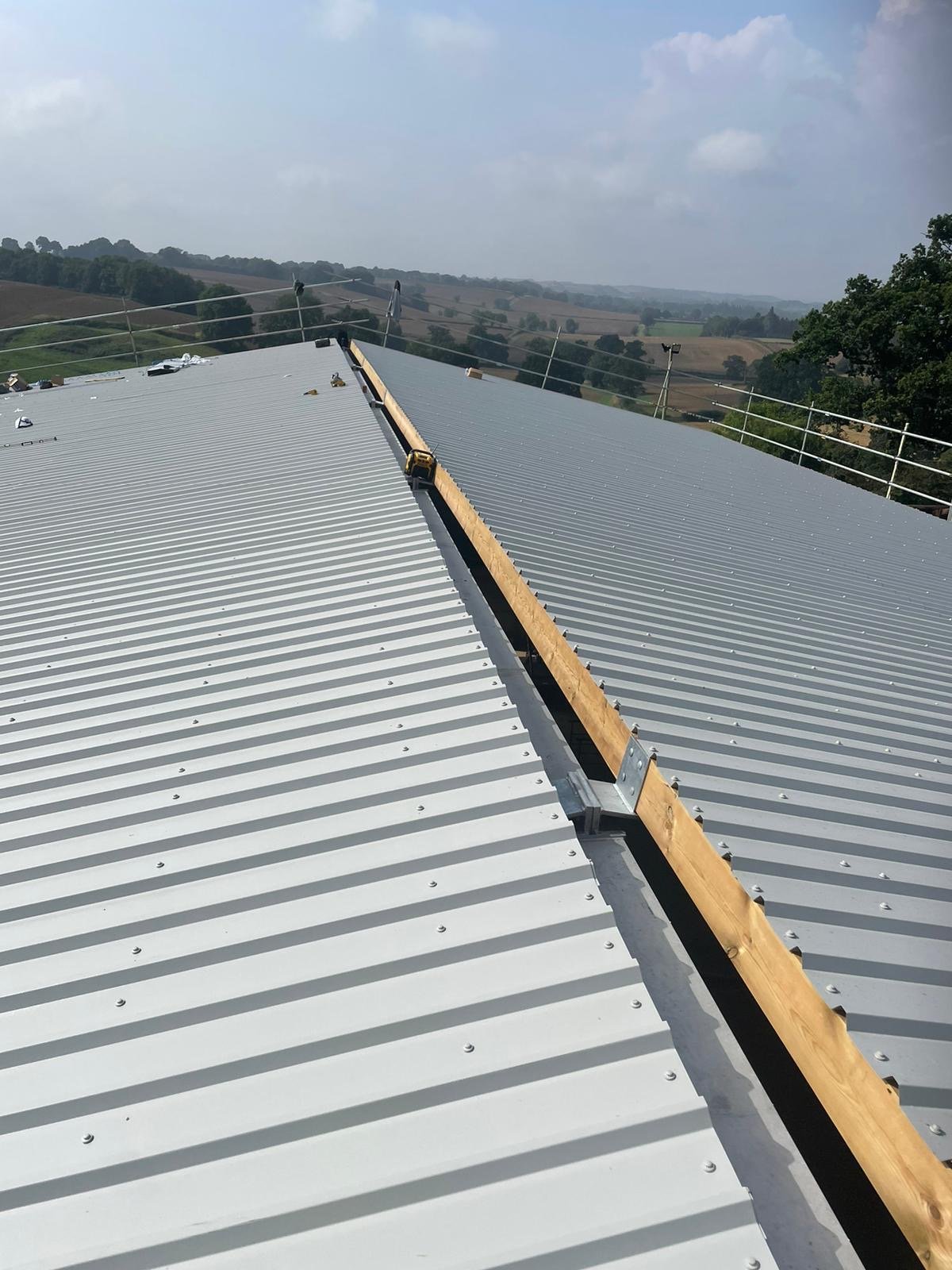An innovative approach to design and planning ensured the construction of a new salt barn hit budget and met all necessary specifications.
Ryebridge Construction was tasked by Oxfordshire County Council to achieve a long-held vision for a new storage facility for winter grit to be used on local roads during icy weather.
Between five and 20 per cent of salt stored externally is lost each year as the changing weather causes it to congeal. Rainwater can also turn it into a contaminate with the potential for causing corrosion.
The council was keen to erect somewhere large enough to store the thousands of tonnes of grit it uses annually, which would prevent moisture clumping and spoilage.
The project, at Deddington Highways Depot near Banbury, has been in the pipeline since 2017, but OCC like most local authorities have budget constraints. Their approach was to split the task into a two-stage project to ascertain feasibility, cost, design and planning.
Ryebridge was awarded a pre-construction services agreement which meant the company would oversee design, planning and pricing for the scheme.
But rather than presenting a design which would also cost too much money, Ryebridge entered into a dialogue with the council to determine what its minimal requirements would be.
Managing director Sean Scully led on the project and researched into the original barn scheme which was never constructed.
He found that the original barn was bigger than the current one and on a different area of the site. The area was undeveloped and due to the location had extensive groundworks.
The Ryebridge proposal was to build a barn in the already developed land which although smaller would comfortably account for the level of salt required to support the winter gritting season. The proposal also included solar panels which would not only provide enough power for the lighting in the barn but contribute efficiency to the remainder of the depot.
Sean said: “The original plan was for a bigger barn in a different area of the site, but we knew that a smaller design would still cope with the council’s winter demands.”
The final design was built on the site of the council’s salt stockpile using traditional construction methods. It had to be completed during the spring-summer period because there was no requirement for using salt during that period, and OCC had held off importing the winter’s grit until it was finished.
Sean added: “A lot of councils can’t consider storing salt indoors because of the cost of building a barn, but I think there is a real opportunity in using Deddington as a case study for what can be achieved with a reasonable and measured investment. They will recover the cost of the barn relatively quickly in terms of the wasted and unusable salt.”





